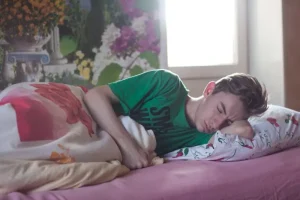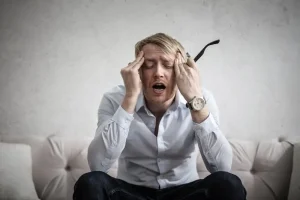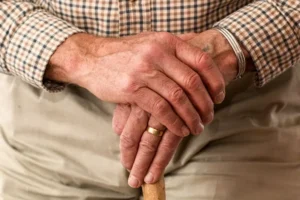
Understanding what is psychosocial rehabilitation in mental health is essential for those seeking effective recovery options. Psychosocial Rehabilitation (PSR) is a crucial aspect of mental health care that focuses on helping individuals with mental illnesses or psychological impairments achieve their highest potential in daily living.
Essential for fostering independence, improving quality of life, and promoting integration into society, PSR provides a holistic approach to mental health recovery.
It benefits not only those directly affected by mental health conditions but also their families and communities. By addressing the social, occupational, and educational needs of individuals, PSR empowers them to lead fulfilling lives, reduce hospitalization rates, and enhance overall well-being.
What is Psychology Rehabilitation?
Psychosocial Rehabilitation (PSR) is a therapeutic and holistic approach designed to support individuals with mental health conditions in achieving their highest level of functioning and independence. It encompasses a wide range of services and interventions aimed at improving social skills, vocational capabilities, and overall quality of life.
Unlike traditional medical treatments that focus primarily on symptom reduction, PSR emphasizes the development of personal strengths, coping mechanisms, and social connections. By addressing the psychological and social factors that contribute to mental health challenges, PSR helps individuals rebuild their lives, enhance their self-esteem, and actively participate in their communities.
This comprehensive approach not only aids in recovery but also fosters long-term resilience and self-sufficiency.
Goals of Psychosocial Rehabilitation
The primary goals of Psychosocial Rehabilitation (PSR) are to enhance the overall well-being of individuals with mental health conditions and to help them achieve meaningful roles within their communities.
This involves fostering independence through the development of essential life skills, such as effective communication, problem-solving, and self-care. PSR also aims to improve social interactions and relationships, providing individuals with the tools they need to build supportive networks.
Another key objective is to support educational and vocational aspirations, enabling participants to pursue their goals and contribute to society. By promoting recovery, resilience, and empowerment, PSR helps individuals reclaim their lives, reduce dependency on mental health services, and achieve a greater sense of fulfillment and purpose.
Key Components of Psychosocial Rehabilitation
Psychosocial Rehabilitation (PSR) is built upon several key components that work together to support the holistic recovery of individuals with mental health conditions. These components address various aspects of a person’s life, ensuring a comprehensive approach to rehabilitation.
- Individualized Assessment and Planning: Tailoring services to meet the unique needs and goals of each person.
- Skill Development: Enhancing daily living skills, social skills, and vocational abilities.
- Peer Support: Encouraging mutual support and sharing of experiences among individuals with similar challenges.
- Family Involvement: Engaging family members in the rehabilitation process to provide additional support and understanding.
- Community Integration: Facilitating access to community resources and opportunities for social participation.
- Therapeutic Interventions: Utilizing evidence-based therapies to address mental health symptoms and promote coping strategies.
- Advocacy and Rights: Empowering individuals to understand and assert their rights within the mental health and broader societal context.
Who Can Benefit from Psychosocial Rehabilitation?
Psychosocial Rehabilitation (PSR) can be beneficial for a wide range of individuals experiencing mental health challenges. Primarily, it serves those with severe and persistent mental illnesses such as schizophrenia, bipolar disorder, and major depressive disorder.
However, its benefits extend to anyone dealing with psychological impairments that affect their daily functioning and quality of life.
Individuals with Severe Mental Illnesses: Those diagnosed with conditions like schizophrenia, bipolar disorder, or severe depression.
People with Developmental Disabilities: Individuals needing support to enhance social and vocational skills.
Veterans and Trauma Survivors: Those recovering from PTSD or other trauma-related conditions.
Substance Abuse Recovery: Individuals working to overcome addiction and seeking to rebuild their lives.
Elderly Individuals: Older adults dealing with mental health issues, aiming to maintain independence and social connections.
Youth with Behavioral Disorders: Young people struggle with behavioral and emotional disorders that impact their educational and social development.
Techniques and Interventions Used in Psychosocial Rehabilitation
Psychosocial Rehabilitation (PSR) employs a variety of techniques and interventions tailored to meet the specific needs of individuals. These methods are designed to enhance skills, foster independence, and improve overall well-being.
- Cognitive Behavioral Therapy (CBT): Helps individuals identify and change negative thought patterns and behaviors.
- Social Skills Training: Teaches effective communication, relationship-building, and conflict-resolution skills.
- Vocational Rehabilitation: Provides job training, career counseling, and support in finding and maintaining employment.
- Life Skills Training: Focuses on practical skills such as budgeting, cooking, and time management.
- Psychoeducation: Educates individuals and their families about mental health conditions, treatment options, and coping strategies.
- Supported Housing: Assists individuals in finding and maintaining safe, stable, and independent living arrangements.
- Peer Support Programs: Facilitates mutual support and sharing of experiences among individuals facing similar challenges.
- Recreational Therapy: Engages individuals in activities that promote physical, emotional, and social well-being.
- Mindfulness and Stress Management: Teaches techniques for managing stress, improving focus, and enhancing emotional regulation.
Role of Mental Health Professionals in Psychosocial Rehabilitation
Mental health professionals play a pivotal role in the success of Psychosocial Rehabilitation (PSR). They provide the expertise, guidance, and support necessary to help individuals navigate their recovery journeys.
Psychiatrists, psychologists, social workers, occupational therapists, and rehabilitation counselors work collaboratively to create and implement individualized treatment plans tailored to each person’s unique needs. These professionals conduct comprehensive assessments, offer therapeutic interventions, and facilitate skill-building activities that promote independence and social integration.
Additionally, they advocate for their clients, ensuring access to necessary resources and services and providing education and support to families. Through their compassionate and skilled involvement, mental health professionals help individuals with mental health conditions achieve their highest potential and lead more fulfilling lives.
Conclusion
Psychosocial Rehabilitation is a comprehensive and vital approach to mental health recovery aimed at enhancing the quality of life for individuals with mental health conditions. By addressing both psychological and social aspects, PSR helps individuals develop essential skills, foster independence, and integrate into their communities. With the support of dedicated mental health professionals, PSR empowers individuals to overcome challenges and achieve their fullest potential.




